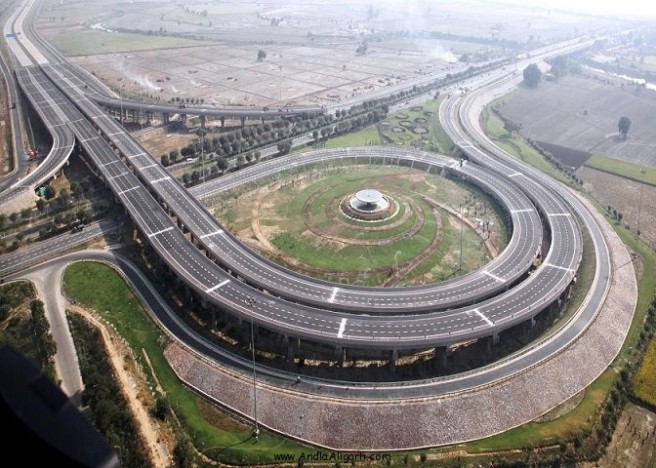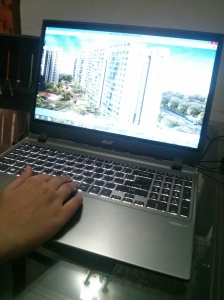A few months ago, Godrej properties launched a township in Greater Noida. Called Golf Links, this 100 acres township, spread around a Golf course, offered luxury Villas in its first phase. The villas, ranging in sizes from 100 to 300 square yards with a starting price of Rs 1.4 crores sold well, in fact a pre-launch buzz ensured that most Villas were booked and allotted on day 1 of the launch.
This did surprise a few people. There’s a perception among real estate buyers that Greater Noida is a long distance away from the centre of Delhi NCR. But what’s perceived as one of the furthest town in the NCR is the nearest if you measure distances in driving time, and not kilometres. It’s also undisputedly, the most beautiful town in the NCR. It actually doesn’t look like everything else in the NCR.
Don’t believe me? Drive down the expressway that takes you to Greater Noida. 30 minutes after you’ve crossed what used to be the DND toll you’ll arrive at a different world. The world in which Godrej is now launching The Suites.
The Suites are exclusive Studios and 2 BHK apartments located close to the Villas launched earlier. These fully-equipped luxury homes offer panoramic views of the Golf course and start at a smartly priced Rs 38 Lakhs. Ranging in sizes from 700 to 1400 square feet there are only 200 odd units up for booking.
Here’s a sneak preview of what’s more at The Suites. A resplendent sky lounge on the 21st floor with an open gym, restaurant and Zen garden amongst other things.
The buzz around The Suites has begun.
But what makes The Suites an attractive buy? I’ve already mentioned the golf course a few times, and also the assurance of buying a Godrej property and the amenities that come along with it. But there’s more.
Golf Links is a low FAR project. This means, and is apparent from the township layout that most properties here will be Villas, and hence very few high-rise towers. The result; uninterrupted views of the Golf course as well as the city.
If you’re an investor, this is where you could park your funds. With so few apartments on offer the possibilities of a good return exist, if and when you decide to exit. If you’re someone who is looking for a weekend getaway or a second home, then this could be that place. For a NCR resident, this would be a second home that’s nearer to home.
The very expensive Jaypee Greens with its magnificent golf course is an immediate neighbour. But as you drive around Greater Noida you’ll notice the city has a distinct identity of its own – Wide, tree-lined roads. Mid-rise apartments. A score or so of private universities and colleges. Large industries and IT campuses. Spread out residential sectors. Sports arenas. It’s also the takeoff point for the Yamuna expressway.
By December 2017 you will be able to hop onto the Aqua line, the Noida-Greater Noida metro link which rides close to Golf Links. The Suites will then be a short and comfortable ride away from almost anywhere in the NCR.













